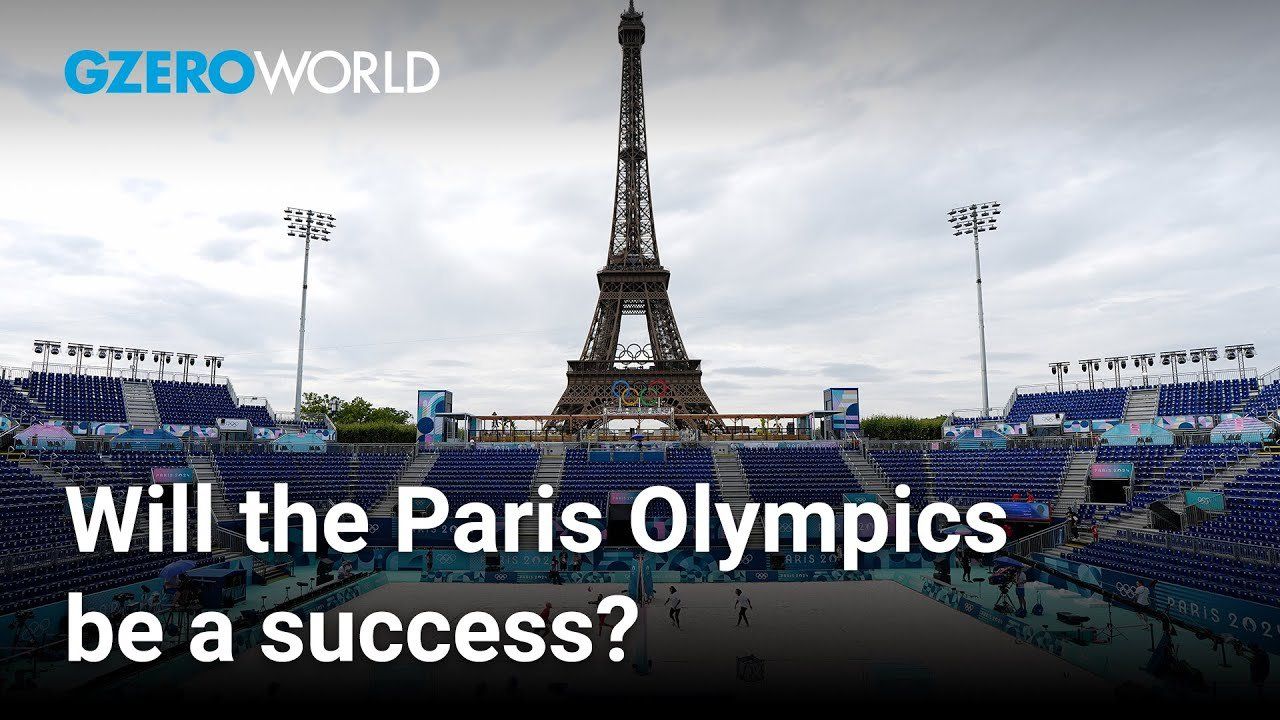
The 2024 Summer Olympics kick off in Paris, France, this week, as the world’s most elite athletes and over 300,000 spectators gather along the Seine for one of the most ambitious Opening Ceremonies in the history of the Games. But will Paris pull it off?
On GZERO World, Ian Bremmer sits down with Washington Post sports columnist Sally Jenkins for a preview of what to expect at the 2024 Paris Olympics, along with security challenges and political concerns going into this year’s Games. Global conflicts loom large, threatening to overshadow the City of Light’s big celebration. Following the IOC ban on Russia’s Olympic Committee due to the war in Ukraine, Russia has been spreading AI-generated misinformation around the Games, increasing the threat of terrorism. The 2024 Games will be a huge challenge because the Olympic sites are embedded throughout the city of Paris and across France. The logistics are so complicated Jenkins predicts it will be “the most difficult Olympics to secure by a long shot.”
Look for the full interview with Sally Jenkins on GZERO World with Ian Bremmer, airing on US public television soon (check local listings.)
Season 7 of GZERO World with Ian Bremmer, the award-winning weekly global affairs series, launches nationwide on public television stations (check local listings).
New digital episodes of GZERO World are released every Monday on YouTube. Don''t miss an episode: subscribe to GZERO's YouTube channel and turn on notifications (🔔).
- What We’re Watching: Putin’s propaganda, new Iran-Israel feud, Title 42 tussle ›
- Ian Explains: Who does China and Russia want to win the US election, Biden or Trump? ›
- France’s center right splits over cooperating with Le Pen ›
- Politics, protest & the Olympics: the IOC’s Dick Pound ›
- Paris 2024 Olympics chief: “We are ready” ›
- Could the Olympics ever be free of politics? - GZERO Media ›
- The dangers of sportswashing for the Olympics - GZERO Media ›
- Ian Explains: Why authoritarian rulers love the Olympics - GZERO Media ›